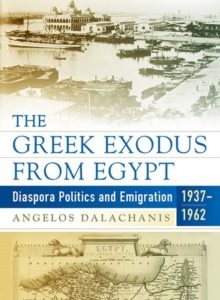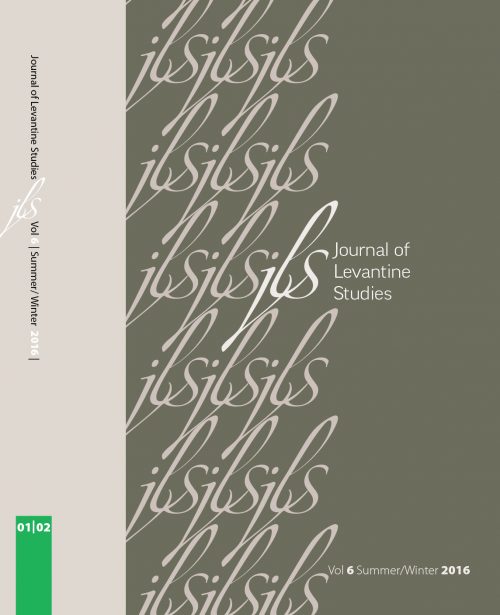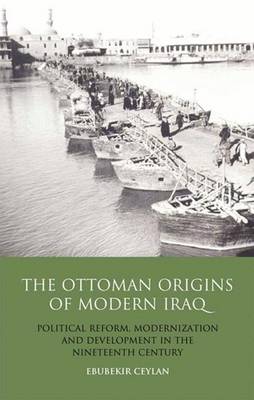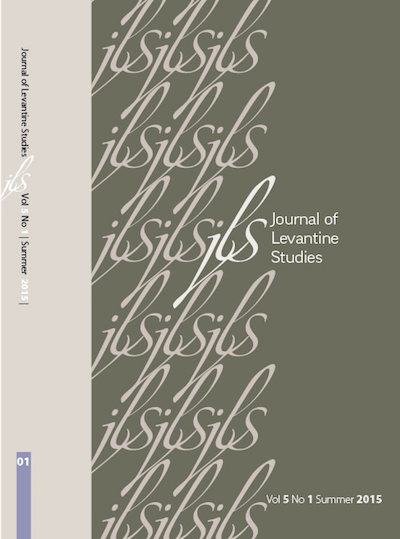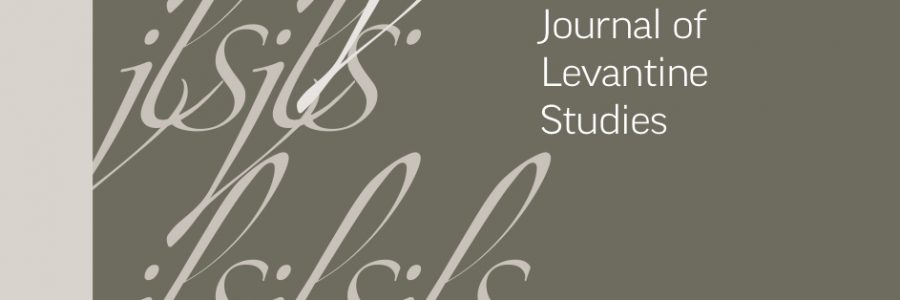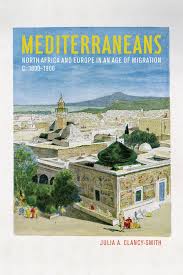-
 Add to cartQuick view
Add to cartQuick viewA Life on the Surface
$5.00Add to cartQuick view -
Add to cartQuick view
Angelos Dalachanis. The Greek Exodus from Egypt: Diaspora Politics and Emigration, 1937–1962. New York: Berghahn, 2017. 288 pp.
Free!Add to cartQuick view -
Add to cartQuick view
Beyond the Sea of Formlessness: Jacqueline Kahanoff and the Levantine Generation
Free!Monterescu develops the idea of Levantinism as a cultural mutation and draws the discussion toward a conceptual framework of purity and ambivalence. Monterescu sees Kahanoff’s writings as testimony to the cosmopolitan ambivalence of people whose home is the region surrounding the entire Mediterranean; he also argues that their relationship with the hegemonic national society can be framed and understood using Georg Simmel’s concept of the “stranger.” The struggle of the societies in the region against colonialism led to a rejection of everything “non-authentic”—that is, everything foreign or European. The emerging “pure” territorial nationalism juxtaposed the “pure” indigenous inhabitants and the cosmopolitan strangers with connections across the sea: the Greeks, Italians, Turks and the Jews. Following Zygmunt Bauman, Monterescu sees the Levantines as multidimensional strangers who are a part of colonial modernism. Cosmopolitanism and anticolonial nationalism, he explains, are complementary rather than incompatible options. Monterescu supports the call for the creation of a new anthropology of the Levant in which conqueror and conquered are trapped together, and in which the Levantine stranger helps to historicize and deconstruct the very category of indigenousness.
Add to cartQuick view -
Add to cartQuick view
Don Isaac Abravanel and the Conversos: Wealth, Politics, and Messianism
Free!The figure and the problem of the converso are often addressed in Abravanel’s works, especially after the 1492 expulsion, as has already been noted and studied by earlier scholars. Yet the link between Abravanel’s theological-political conceptions and his disseminated remarks on converts has not been studied as such. In this article I will try to partially fill this lacuna by studying a few of Abravanel’s important texts on the converts and by highlighting their theological and political background and meaning. Modern historiography has attempted to separate the political dimension of the converso phenomenon apparent in Abravanel’s biblical and messianic commentaries from the theological hermeneutical framework in which it is expressed. The following study focuses on Abravanel’s apologetic use and explanation of the conversos’ fate as it comes to the fore in several passages of his messianic work Mashmia yeshua (Announcer of salvation) of 1498 and of his commentary on Ezekiel of 1504. Abravanel’s messianic apology of Judaism after 1492 developed a certain theological and political meaning of the conversos’s destiny, which pointed at the converso not as a political figure revealing the historicity of the religious community but as a necessary by-product of exile participating in the messianic history of Israel and even revealing the stage it had reached.
Add to cartQuick view -
Add to cartQuick view
Ebubekir Ceylan, The Ottoman Origins of Modern Iraq: Political Reform, Modernization and Development in the Nineteenth-Century Middle East. Library of Ottoman Studies, London and New York: I. B. Tauris, 2011, 297 pp.
Ebubekir Ceylan, The Ottoman Origins of Modern Iraq: Political Reform, Modernization and Development in the Nineteenth-Century Middle East. Library of Ottoman Studies, London and New York: I. B. Tauris, 2011, 297 pp.
$5.00Free!Add to cartQuick view -
Add to cartQuick view
Exile, History and the Nationalization of Jewish Memory: Some reflections on the Zionist notion of History and Return
The essay tries to analyze the notions of “history” and “return” in Zionist discourse in order to clarify their political and cultural implications. I investigate the meaning and function of the phrase “return to history”, commonly used for the description of Zionism, in two different sets of terminologies: the theological terms that defined Jewish-Christian polemics and the terms “culture,” “civility,” and “ethnicity” as used in the discourse of modern nationalism and colonialism. Accordingly I argue that the consciousness embodied in the phrase “return to history” meant the acceptance of the very terms and principles that generated the exclusion of the Jews in Europe. Thheologically and in the terms of premodern Christian-Jewish polemics, the phrase expresses an acceptance of the Christian perception of history of the Jews and their exile. On another level, the use of the modern national model of history for the representation of the Jewish past reveals the obvious Orientalist dimension of the secularization of the concept of history, as referring exclusively to the Christian West. In Zionist discourse both the theological-redemptive and the Orientalist aspects were integrated in a way that illuminated them both. Finally, the return to history and the return to the land meant the obliteration of the history of the land and the existence of its inhabitants. It also determined the removal of the Jews from the multiple local histories in which they had existed in exile in order to include them in one common, separate narrative. As a conclusion, I suggest to re-consider the options embodied in the concept of exile for an alternative way of thinking Jewish-Israeli existence and collectivity.
$5.00Free!Add to cartQuick view -
Add to cartQuick view
Flora Saporto as a Window into Changes in the Lives of Sephardi Women in Palestine at the End of the Ottoman Era
Free!Theoretically or empirically, is it possible that a man could have written the first modern feminist story? Is it similarly possible that an Ashkenazi woman could have written the first protofeminist literary Mizrahi text? Answering in the affirmative, this essay unveils the antinativist Ottoman foundation for what contemporary scholars of Hebrew literature call “Mizrahi literature.” It does so by translating, for the first time into English, parts of a 3,700 word Hebrew story titled “Flora Saporto,” which was published in February 1914 in the periodical Haherut (1909–1917). The text was published under the pseudonym Bat Zvi, but it was written by suffragist and doyen of early modern Hebrew literature Nehama Puhachevsky (1869–1934). Bizarrely, however, during the century since its publication, this foundational story has been neither discussed nor analyzed by any scholar of Hebrew literature.
Add to cartQuick view -
 Add to cartQuick view
Add to cartQuick viewHasan and Marika: Screen Shots from a Vanishing Egypt
Free!This essay analyzes an Egyptian comedy film from the late 1950s as a window—one of the last cinematically—into the vanishing world of Egypt’s minority populations in the aftermath of the Suez Crisis and in the midst of nationalization and Egyptianization. Hasan and Marika (1959) focuses on one particular community, Egyptian Greeks. It borrows heavily from ethnic/religious minority tropes from the long-standing canon of Egyptian film and theater, in particular several classic works that deal with Muslim-Christian-Jewish pairings. It speaks to broader issues of what some scholars have noted to be a shifting or narrowing Levantine ethos. Concurrently, it raises questions about social and cultural transformations in the immediate postcolonial moment. This essay reads the film within the contexts of Egyptian social and cultural history, the position of the Greek community, ongoing limitations to true social integration, and historical questions about the Greek community’s demise. It also reads the film as a deliberate, if at times whimsical, commentary upon Egypt’s changing social landscape, comparing it to other works and later nostalgic depictions of Egypt’s lost multiculturalism.
Add to cartQuick view -
Add to cartQuick view
Hashim Salih, الانسداد التاريخي: لماذا فشل مشروع التنوير في العالم العربي؟ [The historical deadlock: Why did the Enlightenment project fail in the Arab world?]. Beirut: Dar al-Saqi and The Association of Arab Rationalists, 2007. 304 pp.
Hashim Salih, الانسداد التاريخي: لماذا فشل مشروع التنوير في العالم العربي؟ [The historical deadlock: Why did the Enlightenment project fail in the Arab world?]. Beirut: Dar al-Saqi and The Association of Arab Rationalists, 2007. 304 pp.
$5.00Free!Add to cartQuick view -
Add to cartQuick view
Intercultural Meeting Places of Minorities in Ottoman Salonica
Free!The multicultural physiognomy of Ottoman Salonica has become a point of reference. Its contrast with the negative attitude shown by some of the local “homogenous” population toward foreign immigrants today has urged me to investigate the daily opportunities for social mixing enjoyed by the ethnic communities of Ottoman Salonica. I examine some of their meeting places and how these Ottoman institutions functioned so that members of separate religious communities often defined themselves through the common urban identity of their multicultural milieu.
Add to cartQuick view -
Add to cartQuick view
Islamic Legal Hybridity and Patriarchal Liberalism in the Shari’a Courts in Israel
The civil judicial family law system and the shari‘a courts in Israel are a fascinating site for the study of legal hybridity, particularly with regard to cases involving the legal and religious rights of women. Legal hybridity is found both in the shari‘a courts, even when ruling on cases that are under their exclusive jurisdiction, and in the family courts that apply provisions of Islamic and Israeli law. In this article, I examine as a case study of the problem of appointing a woman as arbitrator between quarelling spouses in the shari‘a court arbitration process. This example shows how a shari‘a court operates under pressure from the secular civil judicial system. It is discernible how a system of legal hybridity gives rise to multiple discourses deriving from different normative systems and various players—such as human rights organizations, Islamic feminist movements, secular feminist movements, and the Israel Supreme Court—seeking to navigate the discourse in pursuit of their interests. My central thesis is that this system of legal hybridity is enhancing a patriarchal liberalism that is filled with obstacles and hurdles preventing full equality.
$5.00Free!Add to cartQuick view -
Add to cartQuick view
Julia Clancy-Smith, Mediterraneans: North Africa and Europe in an Age of Migration, c. 1800-1900, Berkeley: University of California Press, 2011. 445 pp.
Julia Clancy-Smith, Mediterraneans: North Africa and Europe in an Age of Migration, c. 1800-1900. Berkeley: University of California Press, 2011. 445 pp.
$5.00Free!Add to cartQuick view
- Home
- About JLS
- Issues
- Vol. 9 No. 1 | Summer 2019
- Vol 8 No 2 Winter 2018
- Vol. 8, No. 1: Summer 2018
- Vol. 7, No. 2: Winter 2017
- Vol. 7, 1: Summer 2017
- Vol. 6, Summer/Winter 2016
- Vol. 5, No. 2 Winter 2015
- Vol. 5, No. 1 Summer 2015
- Vol. 4, No. 2 Winter 2014
- Vol. 4, No. 1 Summer 2014
- Vol. 3, No. 2 Winter 2013
- Vol. 3, No. 1 Summer 2013
- Vol. 2, No. 2 Winter 2012
- Vol. 2, No. 1 Summer 2012
- Vol. 1, No. 2 Winter 2011
- Vol. 1, No. 1 Summer 2011
- Blog
- dock-uments
- Subscribe
- Submit
- Contact

